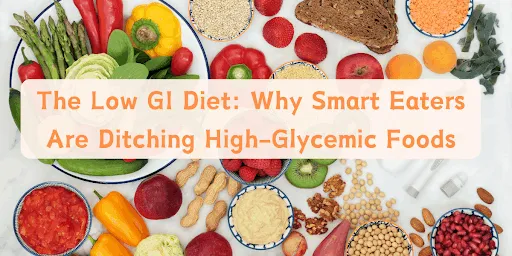Trying to lose weight often feels like a numbers game—counting every calorie, skipping snacks, and resisting cravings. But what if there’s a way to eat more while keeping your calorie count low? Enter zero-calorie foods: nutritious, filling, and practically guilt-free! Let’s dive into what no-calorie foods are, how they can support your goals, and how to add them to your daily meals.
What Are Zero-Calorie Foods?
Zero-calorie foods contain such minimal calories that your body can nearly burn them off during digestion. When you replace high-calorie items with these, you’ll cut down your total intake while still feeling satisfied.
Best Zero Calories Foods For A Healthier You
When it comes to low-calorie foods, you’re not limited to munching on plain salads. There are plenty of superfoods that satisfy your hunger without loading you up on calories. These foods help fill you up, boost your metabolism, and support weight loss—all without weighing you down. Here’s how to work them into breakfast, lunch, and dinner.
Breakfast Boosters
Kickstart your day with low-calorie foods that satisfy hunger and fuel you for hours:
- Apples (52 calories per medium apple)– High in fiber to keep you full, with a natural sweetness that curbs cravings.
- Greek Yogurt ( 59 calories per 100g)– Protein-rich and creamy—ideal for breakfast with berries or nuts.
- Watermelon – (30 calories per slice): Hydrating and refreshing, perfect for hot days.
- Berries – (32-40 calories per half cup): Antioxidant-rich and low-calorie, they add color and flavor to yogurt or smoothies.
- Egg Whites – (17 calories each): A lean protein option that works well in scrambles or breakfast wraps.
- Green Tea – Green tea is a top choice for calorie-conscious people. It’s calorie-free and can boost your metabolism. Plus, it gives you a gentle energy boost without calories.
Lunchtime Energizers
Light, nutritious options to keep you full through the afternoon:
- Broccoli (31 calories per cup): Loaded with fiber and vitamins, ideal for salads or stir-fries.
- Spinach (23 calories per 100g): Versatile and iron-rich, it’s great for salads, wraps, or even smoothies.
- Tomatoes (22 calories per medium tomato): Bursting with vitamin C, they’re perfect for salads or soups.
- Zucchini (17 calories per 100g): Low-carb and versatile, use it in stir-fries or as a pasta substitute.
- Cucumber (16 calories per 100g): Crisp and hydrating, a great base for salads or a refreshing snack.
Dinner Delights
Flavorful options to wrap up the day without going overboard on calories:
- Mushrooms (15 calories per 100g): Rich in antioxidants and savory, they add depth to many dishes.
- Celery (14 calories per 100g): Light and refreshing, perfect for snacking or in salads.
- Cauliflower (25 calories per 100g): A versatile alternative for rice or mash.
- Asparagus (20 calories per 100g): Nutrient-packed and easy to prepare, great with lean proteins.
- Lettuce (15 calories per cup): Crisp, hydrating, and an ideal base for salads or wraps.
|
Food |
Meal |
Calories (per 100g) |
Health Benefit |
Suitable For |
|
Apples |
Breakfast |
52 |
High in fiber |
Satiety |
|
Broccoli |
Lunch |
31 |
Rich in vitamins |
Nutrient boost |
|
Mushrooms |
Dinner |
15 |
Good source of antioxidants |
Flavorful meals |
|
Greek Yogurt |
Breakfast |
59 |
Protein-rich |
Muscle recovery |
|
Spinach |
Lunch/Dinner |
23 |
High in iron |
Versatile meals |
Zero-Calorie Drinks to Stay Hydrated
Drinks like green tea and lemon water offer refreshing flavors without the calories. Green tea, in particular, is full of antioxidants and can boost metabolism. Herbal teas such as chamomile and peppermint provide relaxation without caffeine, making them perfect for evening sipping.
Benefits of Zero-Calorie Foods
Zero-calorie foods support weight loss and offer added health benefits:
- Weight Loss Support: Replacing high-calorie foods helps you naturally create a calorie deficit, essential for weight loss.
- Improved Digestion: Fiber-rich foods like apples and broccoli support a healthy digestive system.
- Better Hydration: Foods like watermelon and cucumber are high in water, benefiting skin and energy levels.
- Nutrient Boost: Despite their low calories, these foods provide essential vitamins, minerals, and antioxidants.
Tips for Making Zero-Calorie Foods Work for You
1. Plan Ahead: Incorporate zero-calorie foods into your weekly meal prep to avoid reaching for high-calorie options.
2. Experiment with Recipes: Try new ways to cook or season these foods to keep meals exciting.
3. Combine with Protein: Pair zero-calorie foods with protein-rich options like yogurt or lean meats to keep you fuller, and longer.
Final Takeaway
Adding zero-calorie foods to your diet isn’t about restriction—it’s about smart choices. Start by adding these foods to your meals and see how they make your journey to a healthier you feel more enjoyable and sustainable. Ready to take the first step? Consult a nutrition expert to get personalized tips on integrating these foods into your daily routine.
Frequently Asked Questions
Are zero-calorie foods truly calorie-free?
Not exactly—they’re very low-calorie, close to zero but not completely calorie-free.
Can I lose weight by only eating low-calorie foods?
While they help reduce intake, combining them with exercise and a balanced diet leads to the best results.
Is green tea a zero-calorie drink?
Yes, if it’s unsweetened.
Do low-calorie foods boost metabolism?
Certain foods, like green tea, can provide a slight metabolism boost, which is beneficial for weight loss.
How do zero-calorie foods help with hydration?
Foods like cucumber and watermelon have high water content. Moreover, they help keep you hydrated throughout the day. Plus, they add a refreshing touch to meals.
Are there any junk foods that have zero calories?
No, there are no junk foods with zero calories.
What are the foods items with the lowest calories?
The foods with the lowest calories include apples, arugula, asparagus, beets, and broccoli.
What are foods with zero nutrients?
Soft drinks, junk foods, and fast foods have zero nutrients.
Reviewed by







